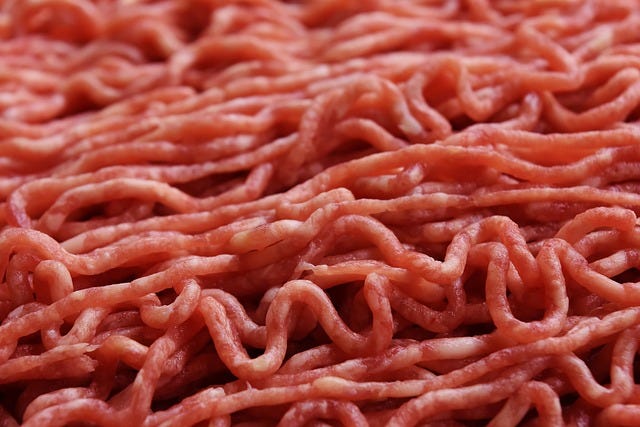In a follow-up on the Salmonella outbreak in Denmark, since March, 51 people in Denmark have been confirmed to be infected with the same type of salmonella (Salmonella Typhimurium).
By whole-genome sequencing of the bacteria that were isolated from the patients, it was seen that they were very closely related and all belonged to sequence type 19.
Among the sick are 31 men and 20 women. The patients are between 0-83 years old (median age is 37 years). The patients live throughout the country
Outbreak investigation at the Danish Food and Drug Administration, Statens Serum Institut, DTU Food Institute and analyzes from the Danish importer now show that the source of infection is beef from England.
Subscribe to Outbreak News TV on YouTube
The meat is imported and chopped at Danish Hilton Foods and sold in Coop's stores. Some of the ground meat has passed its use-by date and is no longer in stores, but consumers can still keep it in the freezer. Some of the minced meat was in stores until yesterday, and authorities are advising consumers to throw the meat away or return it to the store where it was purchased.
Hilton Foods has recalled ground beef sold in Dagli'Brugsen, SuperBrugsen, 365 Discount, Coop, Irma and Kvickly, with a use-by date in the period from 19 March to 13 May. In addition, the company is recalling ground beef with a use-by date of April 2.
Vonaural Tire Inflator Portable Air Compressor 150PSI Air Pump for Car Tires
More information about the recalled products can be found on the website of the Danish Veterinary and Food Administration, Recalled foods.
Salmonella is found in animals and can infect humans through food contaminated with the bacteria. Salmonella is a frequent and well-known cause of bacterial intestinal infections in Denmark. There are more than 2,500 different types of salmonella.
The time that passes from being infected to getting symptoms varies from 6-72 hours. Usually 12-36 hours before symptoms appear.
In most cases, the symptoms of salmonella are mild and go away on their own.
Infection with salmonella typically causes general malaise, diarrhea, stomach ache, possibly nausea, vomiting and/or fever. The infection is often accompanied by joint pain, muscle pain and headache. Plenty of fluids are important to prevent and treat dehydration from diarrhea and vomiting. In the event of severe diarrheal disease, a doctor should be consulted.
If you get persistent symptoms, you should contact your own doctor.
Here's how you can avoid getting infected with salmonella:
Wash hands before starting to cook and after touching raw meat
Do not taste raw meat, e.g. the meatball stuffing
Keep the raw meat separate from the ready-to-eat food, e.g. salad
Fry/cook minced meat through





